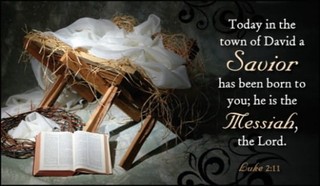
- Recent Translations
- All Translations
Luke 2:37 in Other Translations
Luke 2:37 Meaning and Commentary
And she was a widow of about fourscore and four years
Which is not the date of her whole age, as some have thought, but of her widowhood state, as distinct from her marriage state, and the time of her virginity. And this sense all the versions favour.
Which departed not from the temple
that is, she was constant in her devotion there, at the time of divine service, whether by night or day; not that she was in it, for she had been out of it now; otherwise it could not with propriety be said of her, that
she coming in that instant,
as in the next verse; but that she always was there when there was any worship performed, in which women might be concerned, and which is pointed out in the next clause:
but served God with fastings and prayers, night and day:
she attended to the usual fasts of twice a week, and to such as were enjoined the whole congregation, and to the several set times of prayer, and to every act of devotion, private or public, by night or day. In ( Exodus 38:8 ) we read of women that assembled at the door of the tabernacle of the congregation: both the Targums of Onkelos and Ben Uzziel render it, "who came to pray"; and the Septuagint version, "that fasted": Anna did both.
Luke 2:37 In-Context
Footnotes 1
- [a] Or "then had been a widow for eighty-four years."

